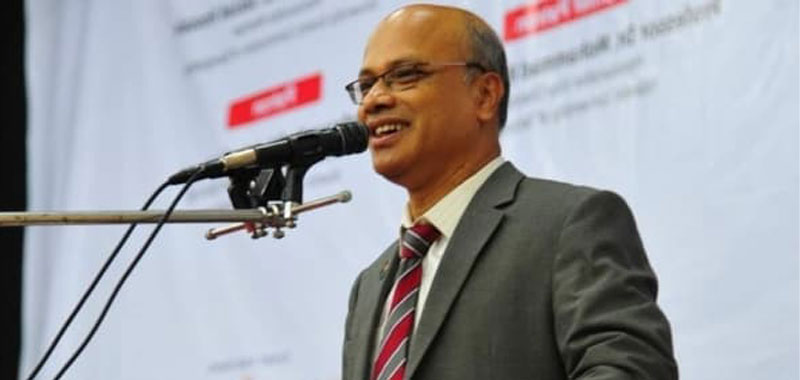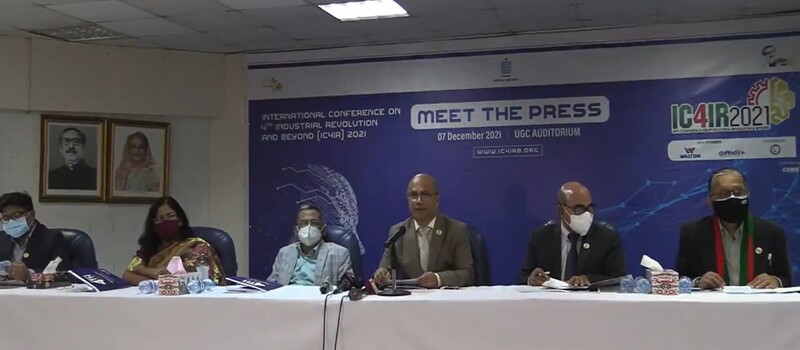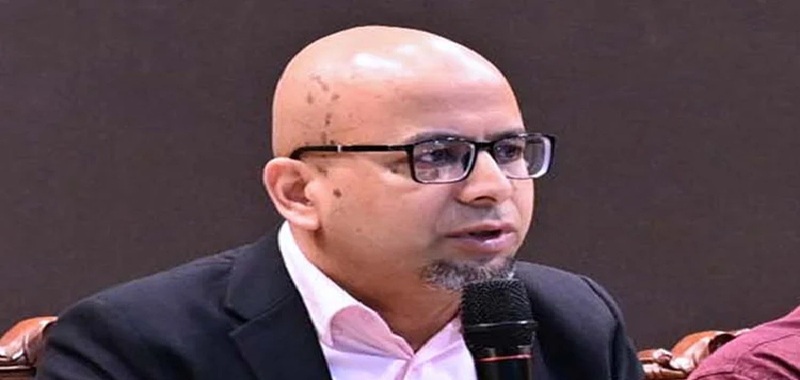Global Leaders Unite in Samarkand for Climate Action
I am excited to share that the inaugural Samarkand International Climate Forum, taking place April 4–5, 2025 in Samarkand, promises to be a transformative event for our region and the world. Having experienced the vibrant cultural heritage and striking natural beauty of Uzbekistan firsthand through visits and work at Samarkand State University named after Sharof Rashidov, I am proud to support an initiative that brings together distinguished leaders from Central Asia, top EU representatives, and key UN officials to tackle global climate challenges.The forum’s agenda is set under the theme “Central Asia Faces Global Climate Challenges: Uniting for Common Prosperity” and will feature dynamic discussions on green economic development, sustainable water management, and effective climate mitigation. Experts, policymakers, scientists, and environmental activists will share innovative strategies and collaborative approaches to address the pressing environmental issues facing our region.A particular focus will be on the Aral Sea crisis—a stark reminder of environmental degradation, having lost over 90% of its original volume since the 1960s. The summit will drive conversations on cutting-edge solutions to restore degraded ecosystems, safeguard water resources, and rejuvenate regional economies.Ultimately, the forum’s agenda emphasizes forging actionable policies that benefit not only Central Asia but also set a global standard for environmental sustainability. By uniting diverse voices and championing innovative solutions, this summit will inspire collaborative action on climate change and pave the way for a sustainable future for our region and the world.Best regards,Dr. Sazzad HossainProfessor, Faculty of Artificial Intelligence and Computer TechnologiesSamarkand State University named after Sharof RashidovEmail: [email protected], [email protected] Website: www.professorsazzad.com
Intel unveils new chip tech in AI battle
US chip titan Intel on Tuesday struck a defiant tone in the face of strong challenges from rivals Nvidia, AMD and Qualcomm, unveiling technologies it said would lead the artificial intelligence revolution.For decades, Intel has dominated the market for the chips that run everything from laptops to data centres. But in recent years, its competitors, especially Nvidia, have soared ahead on specialised AI processors.During a keynote speech at Taiwan's Computex expo, CEO Pat Gelsinger introduced Intel's latest Xeon 6 processors for servers, and shared more details about its next-gen Lunar Lake chips for AI PCs."AI is driving one of the most consequential eras of innovation the industry has ever seen," Gelsinger said."The magic of silicon is once again enabling exponential advancements in computing that will push the boundaries of human potential and power the global economy for years to come."Gelsinger said Intel's latest equipment provides the best available mix of performance, energy efficiency and affordability.Intel's Gaudi systems -- used for advanced AI work such as training models -- come at a third of the cost of what competitors offer, he claimed.Gelsinger's presentation followed earlier keynote speeches by Nvidia boss Jensen Huang, AMD CEO Lisa Su and Qualcomm's Cristiano Amon -- and they were replete with claims and counterclaims about which firm's products were best for AI.Su and Amon gave detailed presentations on the chips their companies have developed for AI-enhanced personal computers. Microsoft this month unveiled its Copilot+ AI PCs, which will have artificial intelligence features built into its Windows operating system.
Mamun is a software engineer from Bangladesh
Abdullah Al Mamun has joined Meta, the parent company of the social networking site Facebook, as a software engineer. He holds a bachelor's degree in computer science and engineering from the Dhaka University of Engineering and Technology (DUET).He sought admission to Bangladesh University of Engineering and Technology in order to pursue his aspiration of becoming an engineer (BUET). Even though he was denied the chance to get admitted there, Mamun didn't quit. He enrolled in the Polytechnic Institute to pursue his engineering passion. He was then allowed to join the duet.He earned a scholarship to study computer engineering at King Fahd University of Petroleum and Minerals in Saudi Arabia after completing his undergraduate studies at Duet. From Florida International University, he later earned a PhD in computer science. He has been looking for technical jobs with internet behemoths like Facebook and Google in the meanwhile. He has participated in hiring processes at several tech behemoths, including Raku, FedEx, LinkedIn, Tesla, and Uber. However, his position did not fit with these businesses.Tech firm Meta sent him an offer to work as an e-four software developer at their Menlo Park, California, headquarters following a seven-step hiring procedure. He encouraged everyone to dream big by writing on Facebook. Everyone was advised by him to keep striving and to avoid comparing themselves to others.
On the 10th of December, the 4th International Conference on the Industrial Revolution begins.
A two-day international conference titled 'Fourth Industrial Revolution and Beyond' organized by the Bangladesh University Grants Commission will begin on December 10 at the Bangabandhu International Conference Center in Dhaka. The overall preparations for the conference have already been completed. The UGC is organizing the conference to mark the birth centenary of Father of the Nation Bangabandhu Sheikh Mujibur Rahman and the golden jubilee of independence.President at the conference, Abdul Hamid will deliver the keynote address on the virtual platform at the opening ceremony on December 10 and announce the opening of the conference. Prime Minister Sheikh Hasina will deliver the keynote address at the closing ceremony on December 11 on a virtual platform. UGC Chairman Prof. Dr Kazi Shahidullah, Education Minister presided over the conference. Dipu Moni, Deputy Minister of Education Mahibul Hasan Chowdhury special guest and Secretary of the Ministry of Secondary and Higher Education. Mahbub Hossain will be present as the guest of honour. The conference will be attended by eminent academics, technologists and researchers from the country, including three Nobel laureates (Oliver Hart, Konstantin Novoselov, Takaaki Kajita) and seven world-renowned scientists.A press conference was held at the UGC auditorium on Tuesday to highlight the overall preparations for the international conference. UGC chairman Professor at the press conference. Kazi Shahidullah, UGC member Professor. Dil Afroza Begum, Professor. Md. Sajjad Hossain, Professor. Muhammad Alamgir, Professor. Biswajit Chand, Professor. Md. Abu Taher, Secretary of the Commission and Heads of Departments were present.UGC Chairman Prof. Kazi Shahidullah said that a network of communication between national and international level academics and researchers would be created through this conference. At the same time, a bridge of cooperation will be built between the industrial and commercial institutions and the institutions of higher learning.He further said that the conference will determine the tasks of the country's higher education institutions to meet the challenges of the Fourth Industrial Revolution and harness its potential. Managing various technologies related to the Fourth Industrial Revolution will require proper knowledge and skilled human resources. He said that the country's higher education institutions have to play a leading role in creating this skilled human resource.Speaking at the press conference, Prof. Sajjad Hossain, Chairperson of the Organizing Committee of the 4th International Conference on Industrial Revolution, said that the conference was aimed at solving existing problems in various fields of national life including FourIR technology - artificial intelligence, IoT, data analytics, blockchain and cloud computing. Will be taken out. Note that a total of 8 keynote papers will be presented at this conference. A total of 100 research papers will be presented in 21 technical sessions. At the conference, several tripartite MoUs will be signed between UGC and higher education institutions with the representatives of industry and commerce organizations to conduct joint cooperation activities with the industrial institutions of the country.It was also informed at the press conference that "Mujib Centenary Idea Competition-2021" and "Mujib 100 Art Exhibition-2021" have been organized to spread the local innovations worldwide.
Everything you wanted to know: Big Data and Cryptocurrency
Let your mind wander back in time to recall the cartoons of a generation ago. A popular depiction of cutting-edge science consisted of a scrawny genius, his persona dominated by a dome of a head, one large ear planted on each side of the face and crowned by unruly wisps of white hair, with knotted eyebrows frozen in the concentration of impending discovery. Hunched over an array of vats, dishes, and test tubes, the maniacal gleam was matched in intensity only by the forest of glass perpetually boiling and spewing their multicoloured venom into the atmosphere of a laboratory that lesser mortals entered at their peril.Pause for a moment in the restless present, and replicate the scene in context. Now, instead of the “mad professor,” one is confronted by the image of a young whippersnapper, perhaps just out of college but probably not, un-groomed, tousle-headed, clad in t-shirt and shorts, feet on the table, laptop balanced precariously on one knee, the remnants of a forgotten meal of burger, fries, and soda pop contributing to the mayhem of the tabletop, a juvenile conductor who, with the occasional tap of the keyboard, controls the clack and hum of the unending rows of servers behind him, squat canyons of impersonal machinery churning and processing and crunching an endless stream of what we nonchalantly refer to as “data.”Welcome to the “busyness” of today. The collection, aggregation, sifting, and processing of information about the ways and means of one’s fellow human beings is now unprecedented in volume and boggles the mind with the scope of its application. The information of the world is now in the possession or control of a handful of organizations, and the logical corollary to this mega-aggregation is data mining. Therefore, if one has the wherewithal, install a server to sift and analyze and electronically ponder on certain identified accounts, record the caprice and trends of human behaviour in all its permutations and combinations and more, and archive the outcome in anticipation of the next sellable idea.Human impatience decreed that the monopoly needed to be taken to the next level, because the longer this data remained tranquil and undisturbed by even the slightest wind to ripple its surface, the less valuable it became. It would only be a matter of time before human endeavour and innovation churned the ocean with the motive of revenue and profit. But let us examine the process before arriving at the ultimate objective.In the beginning, a digital ledger is created. This is the short-form reference to something known as distributed ledger technology, a digital system for recording the transaction of assets in which transaction and computation and archiving is happening on different computers and the transactions and their details are recorded in several places at the same time. Unlike traditional databases, these ledgers are not maintained in one central location. The digital ledger works on the concept of blockchain technology as applied to data both enormous and complex.The data is computed in various servers all over the world, moving from one blockchain to another, and remains in those specific servers in machine-readable (encrypted) form. Mimicking the behaviour of Mercury, the capricious and restless character of Greek mythology, the online file jumps from one computer to the next laptop to the other server until it is reined in and given commercial form by the tap of a secured key.We are describing an undertaking on a colossal and transnational level. The “system,” for want of a better expression, has to be “on” and “up” at all times. There cannot be even a millisecond of “downtime” because of the ceaseless auto-computing taking place at some unknown point of the electronic chain.And it is at this point when a creature generically referred to as cryptocurrency appears surreptitiously on the horizon. So stealthily, in fact, that few people are even aware of its decade-old existence. But it is only in recent months that this notion has begun to flex its digital muscles and advertise its existence. And it is the miracle of marketing that has people across the globe taking their first tentative steps to open their minds and explore the latest manifestation of commercial innovation. But how does it work? Let us also explore.The given fact is that every server is constantly mining data, the foundation on which the commercial proposition is constructed. Companies that have floated and endorsed online currencies, or “coins,” attach a certain value of the coin to the data controlled and processed by the company they have tied up with. As an outcome of this enterprise-level contract, one “opens” an account with the owner of the coin. Depending upon the amount of data being mined, a certain value of a coin is attached to this activity. The value of the coin is infractions and is recorded in the cryptocurrency wallet of choice. For a certain amount of time and volume provided for data mining, the coin company shall allocate a value. Of course, the value will be inversely proportional to the reputation and currency of the coin. The availability of the coin, therefore, shall always be dependent upon the amount of data that is available for mining to the public.The digital wallet is anonymous and encrypted and known only to the parties involved in the particular transaction. The level of anonymity is such that one party is not even aware of the identity of the other.Have we permitted the force of this new enterprise to pull us into the maelstrom of a world that we barely recognize? No, most probably not. Because as owners of the latest handheld technology, each of us is, willingly or unwillingly, a participant in the global undertaking and exercise of metadata, a veritable tsunami that we could not anticipate but are now submerged by.Digital currency is probably the way of the future. But for its success, there needs to be mass participation. The dynamics and nature of an enormous subcontinent overflowing with potential human capital requires that political goodwill is built and accumulated on a corresponding scale. Accordingly, experience demonstrates that it is the instrumentality of the mass-based welfare scheme that has proved to be the most potent and efficacious method of recording the performance of an administration. What better way to kick-start a nascent parallel economy than by putting in place a digital wallet for every woman of the household and encouraging her to place a designated amount into the digital crypto economy?We have for several years now been passive participants and contributors to a new model of doing business in which the personal returns are few if any at all. It is up to us to take the initiative and create our destiny, invisible as it may be, and play a more meaningful role in an economy that has transformed life and commerce at unimaginable levels.Dear reader, let us continue to unravel the secrets of this invisible behemoth. It cannot be as cryptic as it is made out to be.
Facebook removes Chinese network over Covid claims by fake 'Swiss biologist'
Facebook owner Meta Platforms Inc (FB.O) said on Wednesday it had removed accounts used by an influence operation originating in China that promoted claims of a fake "Swiss biologist" saying the United States was interfering in the search for Covid-19's origins.Meta said in a report the social media campaign was "largely unsuccessful" and targeted English-speaking audiences in the United States and Britain and Chinese-speaking audiences in Taiwan, Hong Kong and Tibet. Claims by "Swiss biologist" Wilson Edwards were widely quoted by Chinese state media in July. In August, several Chinese newspapers removed comments and deleted articles quoting him after the Swiss embassy in Beijing said it had found no evidence of him as a Swiss citizen.Meta said Facebook removed the Wilson Edwards account in August and has since removed 524 Facebook accounts, 20 Pages, four Groups and 86 Instagram accounts as part of its investigation. Such removals also take down content that these entities have posted. "We...were able to link the activity to individuals in mainland China, including employees of a particular company in China, the Sichuan Silence Information Technology Company Limited, as well as some individuals associated with Chinese state infrastructure companies around the world," Meta's head of global threat disruption David Agranovich told Reuters.Sichuan Silence Information Technology Co did not immediately respond to a request for comment. The Chinese foreign ministry and internet regulator Cyberspace Administration of China also did not immediately respond to requests for comment.Meta said it had not found any connection between Sichuan Silence Information Technology and the Chinese government.
Britain is offering the world's first digital health passport
Britain is the first country in the world to be infected with the coronavirus and to issue health passports to people who have recovered from the virus. British workers need to take a health passport to return to work or to go out. For this, the citizens must submit all the data of facial recognition and biometrics. Only passport holders can travel to the office or travel.Prime Minister Boris Johnson's government has already begun talks with technology companies. This digital passport will be issued only after corona or antibody (immunity) test. That is why it is also called 'Immunity Passport'. Not just Britain, but several other countries, including the United States, are considering issuing passports to citizens. In the UK, this data will be stored with the Department of National Health.“V-COVID is a game changer in rapidly speeding up the process of getting critical care key workers and frontline staff back into the NHS and in our hospitals,” said VST Enterprises founder and CEO Louis-James Davis, in the statement. “As a digital healthcare passport, it will also be a critically important asset in getting our other key workers in the blue light emergency services such as police, fire and ambulance services and the military returning back to operational duties quickly and effectively. At the same time this will also help to alleviate the pressure off the NHS and emergency services.” And in the United States, this information will be stored at all levels of local, state and central government. Meanwhile, the World Health Organization (WHO) has expressed concern over attempts to give citizens special permission to return to work. The Guardian.
UP to China will get a lot of facilities as 100 US firms may shift base
The government of Chief Minister Yogi Adityanath has made a special offer to many big companies. The UP government has told these companies that if they transfer their base and factories from China to UP, they will be given various facilities. These companies include FedEx, UPS, Cisco, Adobe, Lockheed Martin, Honeywell, Boston Scientific Cake, among many others. Recently, Prime Minister Narendra Modi took advantage of the current situation due to the spread of coronavirus and called for global companies who want to exit China. Based on this goal of PM Modi, the UP government has placed this offer in front of them by holding a video conference with about 100 investors and companies of America. Uttar Pradesh's MSME, Investment and Export Minister, Siddharth Nath Singh, has said that he was asked a series of questions about the façades that the state government may offer to companies operating in China if they shift their base to UP. In response to these questions, he told the companies that provisions can be made according to their needs of the companies coming to UP. For example, FedEx and UPS were told that they could use the proposed Jewar International Airport to start their business. Siddharth Nath Singh said that medical device manufacturer Boston Scientific has been asked what facility the state government can give them, as the state government is ready to negotiate changes according to its requirement. Apart from this, the minister also suggested that Lucknow would be the best place for the company. Similarly, defense firms like Lockheed Martin were told that they could use the Uttar Pradesh Defense Corridor. While global companies were already making plans to move their bases due to the US-China trade war, Coronavirus has made the situation worse for China.The trade war between the US and China had led to a steady increase in the prices of products, reducing the profit margins of companies. Although India could not fully benefit from the situation at that time, the Center and the States do not want to leave any stone unturned to attract foreign investors this time. Meanwhile, Siddharth Nath Singh told American companies that the state has already made several incentives like capital subsidy, land subsidy. Also, there are 90 lakh MSME units in the state which can be used for many purposes. Apart from this, the state government has also discussed several measures, including a change in its industrial policy, recently to entice companies wishing to bring their base UP from China












